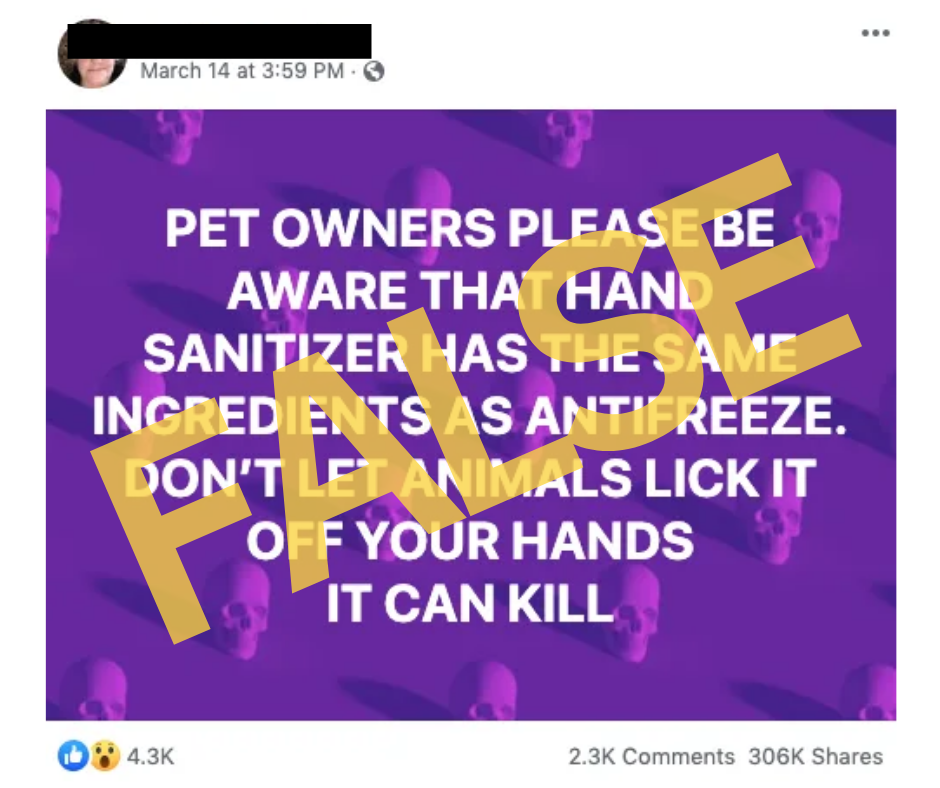As concern over the spread of COVID-19 coronavirus disease increased globally, so too did the demand for hand sanitizer. Along with that came unsupported claims about the dangers hand sanitizer presents to pets.
Since mid-March, the claim that hand sanitizer "has the same ingredients as antifreeze" -- and therefore could theoretically kill your pet if they lick a recently sanitized hand -- has gone viral.
The following post had garnered over 300,000 shares at the time of this reporting:
But this assertion is not true.
The chemical of concern in antifreeze is ethylene glycol. Hand sanitizers, which are either ethanol- or isopropanol-based, do not contain ethylene glycol. It is true that ethylene glycol is very dangerous to pets (and humans) if ingested, even in small quantities, but such a fact is irrelevant to the issue at hand.
Although ethanol poisoning (i.e what happens when a human drinks a medically dangerous amount of alcohol) is possible if a pet were to consume large quantities of hand sanitizer, an animal merely licking a recently sanitized hand is not cause for concern. For that reason, the claim is "False."


